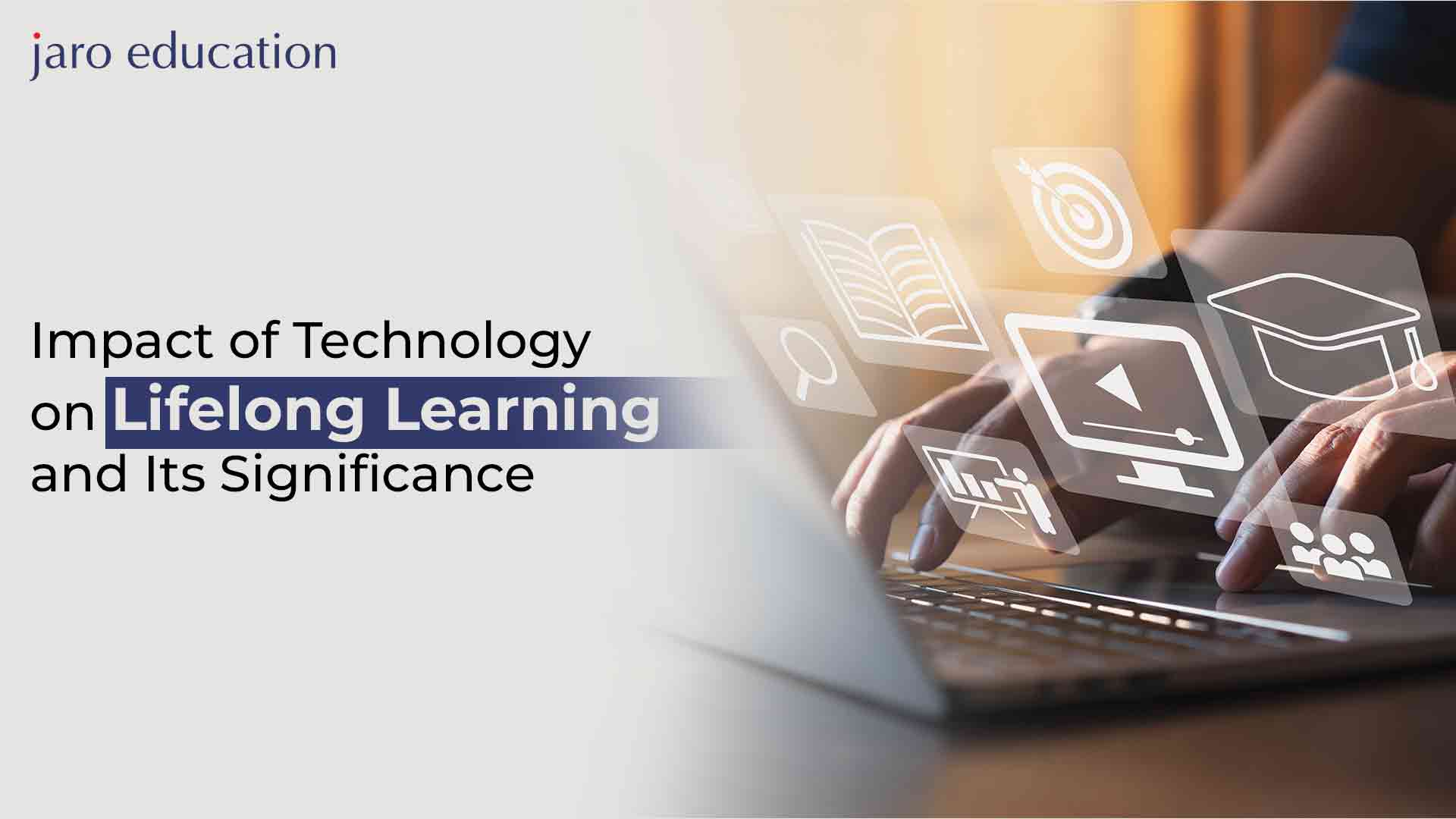
Impact of Technology on Lifelong Learning and Its Significance
Technology significantly impacts lifetime learning because it changes how students learn throughout their lives. The learning process is revolutionised, allowing students to interact differently within and outside the classroom. Technology’s integration as a tool in education gives instructors more flexibility in changing their jobs. It satisfies the demands of companies, communities, and parents who anticipate its incorporation into formal education. Teachers must prepare students for a society that is more centred on technology because they enjoy using it and it fosters a love of learning. The digital divide continues to be a problem in this environment, emphasising the need for equitable access. Thus, technology encourages adaptable, varied, and lifelong learning opportunities, expanding education beyond traditional schooling.
Table Of Content
Concept of Lifelong Learning
Benefits of Lifelong Learning
Impact of Technology on Lifelong Learning
How to be a Lifelong Learner?
Conclusion
Concept of Lifelong Learning
Lifelong learning is a dynamic and self-directed process of personal development that transcends the confines of formal education institutions. It is a voluntary pursuit rooted in the innate human desire to explore, grow, and improve one’s quality of life. This form of learning encompasses a broad spectrum of formal and informal activities driven by personal interests and motivations rather than external pressures.
Lifelong learners continually seek opportunities to acquire new skills, expand their knowledge, and delve into diverse experiences. This enduring commitment to learning is characterised by voluntariness, self-motivation, and self-initiation. Financial constraints do not restrict it, as it often involves informal and cost-effective education methods. Lifelong learners can be found mastering practical skills like sewing or cooking, immersing themselves in self-taught studies such as learning a new language or exploring niche subjects, venturing into new physical activities like martial arts or skiing, and embracing emerging technologies with enthusiasm.
Lifelong learning underscores the essence of personal fulfilment and development, emphasising that pursuing knowledge and skills is a profoundly human trait. From the earliest stages of childhood, where we learn fundamental life skills, to adulthood, where we navigate the intricacies of smartphones and culinary arts, lifelong learning is an integral part of our journey. It is a journey motivated by our innate curiosity, guided by our interests, and directed towards our self-defined goals.
Benefits of Lifelong Learning
Impact of Technology on Lifelong Learning
How to be a Lifelong Learner?
Conclusion
Technology and lifelong learning are interwoven, providing individuals with the means to pursue their passions, acquire new skills, and adapt to ever-evolving tech landscapes. The Executive Programme in Applied Data Science with Machine Learning & Artificial Intelligence by CEP, IIT Delhi, explicitly addresses how the landscape of lifelong learning is changing in the context of technology’s significant influence on the business world. With the help of this programme, you will get a deeper understanding of data science principles, machine learning algorithms and much more. So, if you are a tech wizard and want to constantly excel in this field, apply today!


